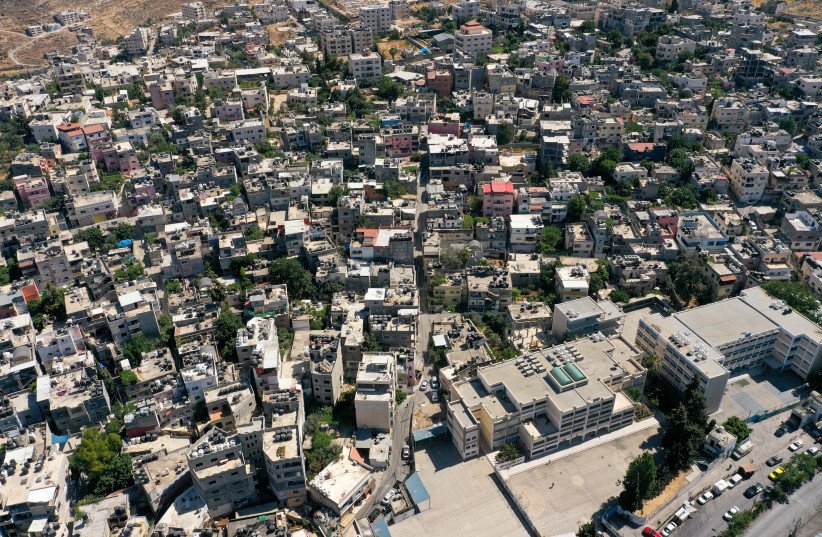Israel’s “occupation of Palestine” is the most critical environmental threat his people face, Palestinian Authority Prime Minister Mohammed Shtayyeh told the United Nations Climate Change Conference (COP26) on Monday.
“We’re here today to tell the world that the Israeli occupation is the most critical long-term threat to the Palestinian environment,” Shtayyeh tweeted in advance of his speech.
He was one of 30 prime ministers, including Prime Minister Naftali Bennett, who spoke on the second day of the event which ends on November 12.
Shtayyeh used his few minutes on the global stage to blame Israel and settlement activity for the environmental problems in the West Bank and Gaza.
“The way in which waste is treated by Israel, particularly toxic waste, as well as solid waste, are the principal causes of pollution in Palestine,” Shtayyeh said.

In addition, he said, “our resources are stolen by our neighbor Israel,” he said.
Shtayyeh accused Israel, for example of felling 2.5 million trees in the Palestinian territories, since 1970, including 800,000 olive trees.
In Gaza, he said, 95% of the groundwater is already contaminated. The Dead Sea will entirely dry up by 2044 if Israel doesn’t stop its practice of extracting salt and minerals from that sea, he said.
The Palestinian government signed the 2016 Paris agreement and was one of the first to adopt national environmental adaption plans ten years ago, including a program for the “greening of Palestine,” he said.
Public institutions have adopted solar energy as the main source of electricity, he said, adding that this includes 500 schools and the goal is to extend this to all educational facilities.
“We have a raft of public plans and projects that ties sustainable development to green and clean energy,” he said.
“We also work with a huge number of international partners and indeed with the private sector to engage in water treatment,” he said.
“Nonetheless the Israeli occupation is the major stumbling block to sustainable development in Palestine. The occupation must come to an immediate end so that our people can live in freedom and in dignity and can do so in an independent territory with its capital Jerusalem.
“Our refugees must be allowed to come home to their land territory,” he said.
“I hope we will continue to cooperate and collaborate and work together to ensure clean air and a clean and greener environment for one and all,” he stated.
The right-wing NGO Regavim immediately shot back by accusing Shtayyeh of being both an “antisemite” and a “liar.” It gave specific examples on Twitter of the Palestinian Authority’s environmental negligence, including the pollution of the En Prat stream with sewage from El Bireh, the Hebron stream from Palestinian marble factories and the Alexander stream from Palestinian olive oil production. Regavim charged that the PA also failed to crack down on the burning of garbage, such as tires.
